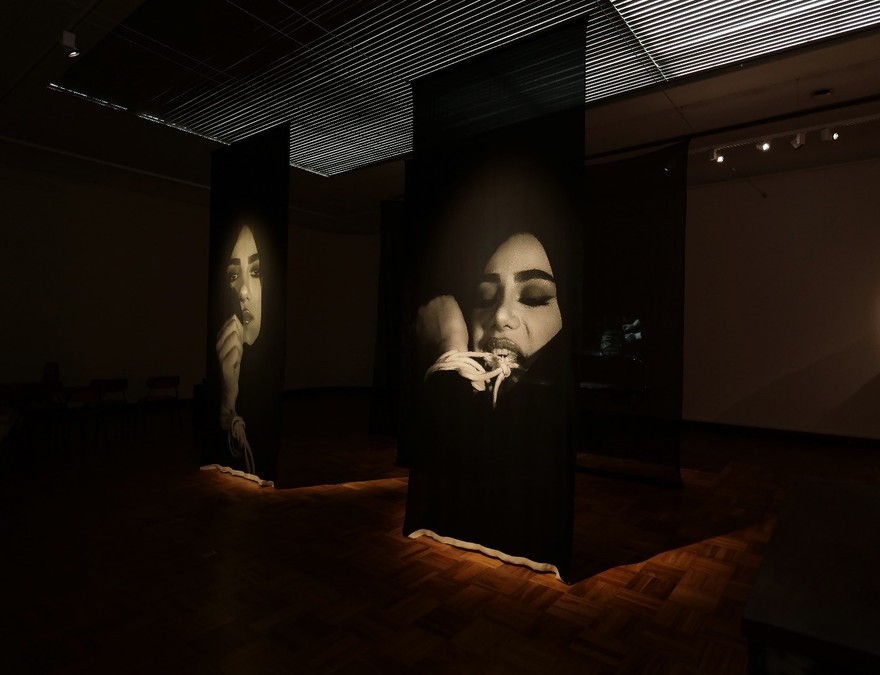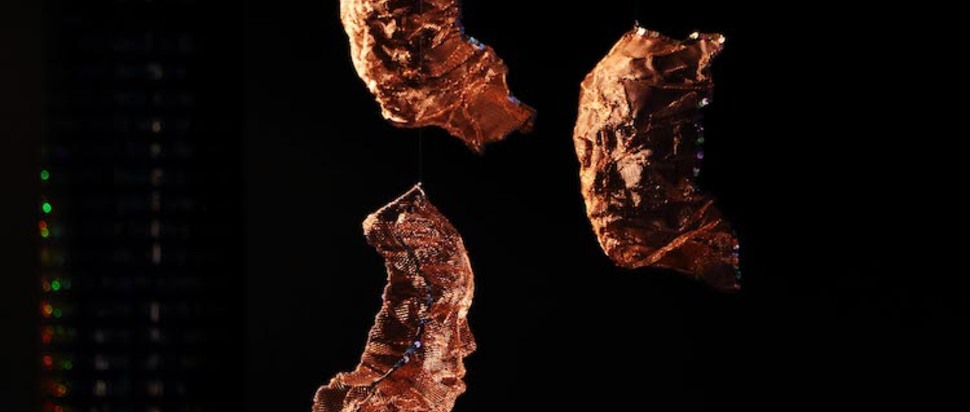Crafted Selves: Cat Dunn on curation and identity
As she prepares to open Crafted Selves: The Unfinished Conversation at St Andrews Museum, The Skinny meets curator Cat Dunn to talk about her new touring exhibition
Cat Dunn is busy preparing for possibly her most ambitious curatorial project yet. The Glasgow-based artist turned curator has been working on developing a touring show called Crafted Selves: The Unfinished Conversation with the support of Fife Contemporary. The group exhibition features 13 Scotland-based artists, including Sekai Machache, Ashanti Harris, Rae-Yen Song and Tilda Williams-Kelly, whose works will be presented through the prism of dual identities. The show opens on 14 October at St Andrews Museum, before touring to Kirkcaldy Galleries and another location (to be confirmed) in 2024.
Crafted Selves… works from the familiar but frustrating question that people of colour are consistently posed – ‘where are you really from?’ For the curator, she is much more interested in centring dual identity on the question ‘Who are you?’ rather than ‘Where are you from?’. The exhibition therefore reaches further, past questions of nationality and ethnic origin, exploring how duality also refers to disability, gender identity and sexuality. Dunn wanted to communicate both the "frustration and the sadness" of navigating dual identities – but also the joys. She professes that "we all have multiple identities – whether that be mother, daughter, sister, wife…" but that claiming dual identity comes with higher stakes for those whose identities are politicised. She says, "people often only see the ideology of 'othered'" but with this exhibition, she wanted to "play with the nuances of that and really challenge the politics of that." The exhibition will feature a looping audio work made up of excerpts of the artists talking about their lived experiences of existing with dual identities, drawing these constellations of voices together.
Crucially, Dunn understands her curatorial process as being centred on ‘co-creation’ and a desire to work with people rather than objects: "People sometimes tell me that you can only curate objects, but I don't believe that. I always say that I curate people and stories, rather than objects. Using indigenous cultures is a very important part of my curatorial practice because it speaks to that curation of people and stories that allows us to celebrate every aspect of an artist, not just the artworks themselves." This human-centred, compassionate working ethos is evident in the array of curatorial projects she has undertaken while working towards a PhD at The University of Dundee.

Six Feet Under by Sarah Pakdel Cherry
These exhibitions work with early-career and emerging artists of colour based in Scotland – for whom the road to recognition is longer and more complex than for their white contemporaries. Dunn has become an important advocate for these artists, many of whom have become part of her ‘family unit’, which grows with every exhibition project: "With every exhibition I do, those artists are the first people I reach out to because I know they're going to deliver. You've got that family unit that you always reach for and you're just watching each individual person continue to rise, and you're their biggest cheerleader and their biggest champion. Then you pull in new artists… and then they jump onto the train, and then with the next exhibition, I contact the same people again, and then I pull in new people. So the train keeps moving, and we all keep growing and we all keep levelling up."
Having largely worked in Glasgow and Edinburgh previously, it has been a new experience for Dunn to work with semi-rural communities, where people’s daily needs and priorities are often different to those of urban dwellers, with issues such as isolation and limited infrastructure to contend with. She has taken this in her stride, and has spent an incredible amount of time thoughtfully undertaking in-depth research on the histories and demographics of each area. "Each place has its own distinct history," Dunn says, "so I went about asking whether each place perhaps has links to the plantocracy. Are there links here to enslaved people? I start all of my research from this aspect." At each location, the question always at the back of her mind has been: who is feeling that they’re not being seen?
As part of the exhibition, audiences can catch the Scottish premiere of Alberta Whittle’s film The Axe Forgets, But The Tree Remembers which will be screened at The Byre Theatre in St Andrews on 17 January. The film weaves together the experiences of the artist’s own family, stories sourced from Hackney Archives and conversations with the borough’s Windrush-generation residents and their descendants, including Janice Knight, whose legal battle for justice for the police brutality experienced by her family continues to this day. Whittle’s film highlights the uncertainty and precarity experienced by Black communities then and now.
Crafted Selves: The Unfinished Conversation, St Andrews Museum, 14 Oct-24 Feb, Wed-Sat 10.30am-4pm, then touring to Kirkcaldy Galleries, 23 Mar-12 May, open daily, free
